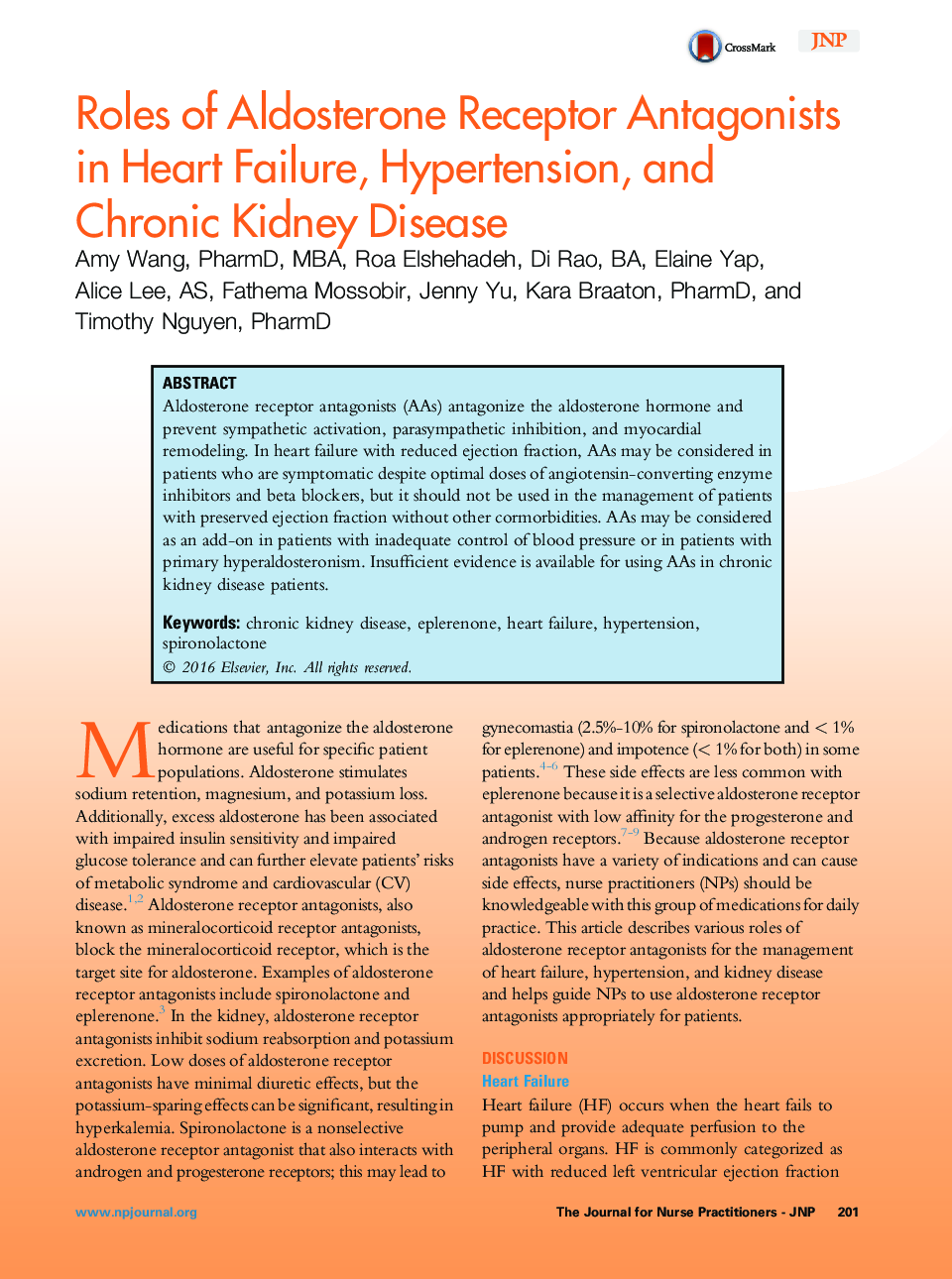| کد مقاله | کد نشریه | سال انتشار | مقاله انگلیسی | نسخه تمام متن |
|---|---|---|---|---|
| 2659744 | 1140308 | 2016 | 6 صفحه PDF | دانلود رایگان |
• Aldosterone receptor antagonists have been extensively studied in heart failure with a reduced ejection fraction.
• The role of aldosterone receptor antagonists (AAs) in heart failure with preserved ejection fraction, hypertension, and chronic kidney disease is uncertain.
• We reviewed the literature on the efficacy of AAs in heart failure, hypertension, and chronic kidney disease.
• We presented the recommendations on using AAs in practice for nurse practitioners.
Aldosterone receptor antagonists (AAs) antagonize the aldosterone hormone and prevent sympathetic activation, parasympathetic inhibition, and myocardial remodeling. In heart failure with reduced ejection fraction, AAs may be considered in patients who are symptomatic despite optimal doses of angiotensin-converting enzyme inhibitors and beta blockers, but it should not be used in the management of patients with preserved ejection fraction without other cormorbidities. AAs may be considered as an add-on in patients with inadequate control of blood pressure or in patients with primary hyperaldosteronism. Insufficient evidence is available for using AAs in chronic kidney disease patients.
Journal: The Journal for Nurse Practitioners - Volume 12, Issue 3, March 2016, Pages 201–206
